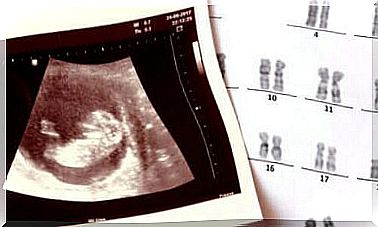Lack Of Vitamin D In Women And The Risks It Entails

Learn how to detect some subtle but effective signs that you may be deficient in vitamin D.
If you notice that you have any of these symptoms, it is important that you talk to your doctor, who will probably recommend that you have a blood test. This is the only way to accurately determine your vitamin D level.
Vitamin D is an extremely important nutrient due to its powerful effects on several different body systems. This vitamin is mainly produced by the body from a certain type of cholesterol, which is transformed with the help of the sun’s rays.
But vitamin D can also be absorbed by eating certain foods. Although it is a vitamin, it is also considered a hormone because it is essentially synthesized in the skin as well as through several stages of metabolism in the liver and kidneys.
Vitamin D should really be something that all women should be aware of. Especially for those who are breastfeeding and pregnant and do not eat supplements. Its deficiency is a risk factor for fetal development, immune system and skeleton.
Risks related to vitamin D deficiency in women
The body efficiently produces vitamin D. This production takes place in the skin, through the effect that the sun’s ultraviolet light has on cholesterol. But this can also be supplemented with vitamin D from the diet.
Keep in mind that vitamin D is found in many foods. The most important are oily fish, cod liver oil and some vegetables as well as mushrooms.
Vitamin D deficiency in women is a real danger to their health. Some symptoms are obvious signs of a deficiency of this vitamin, such as chronic and permanent pain in the bones, joints and muscles, or a state of depression and fatigue.

1. Hypertension
Hypertension, or high blood pressure, is a common disease and a very important cardiovascular risk factor. Vitamin D plays an important role in a woman’s health and helps reduce the cardiovascular risk caused by high blood pressure.
In fact, vitamin D deficiency can have a negative effect on blood pressure. Taking a dietary supplement with this vitamin is therefore one of the best ways to regulate blood pressure.
2. Depression
Depression can be a result of vitamin D deficiency. In fact, there is an important link between low levels of vitamin D and depression. In addition, vitamin D plays an important role in regulating serotonin synthesis.
Serotonin is a neurotransmitter that regulates appetite and mood, and which is activated by vitamin D in a hormonal way. Therefore, it is a crucial factor for women’s mood and mood. It plays an important role in cases of depression.
3. Fatigue and lack of sleep
One of the most important functions of vitamin D is to help the body absorb calcium, in addition to fighting fatigue and stimulating the immune system. Fatigue and exhaustion are some of the most well-known symptoms of vitamin D deficiency in women.
As a hormone, vitamin D plays an important role in metabolism and the immune system. In the same way, it also plays a key role in the quality of sleep for women.

Joints and bones are affected by a lack of vitamin D.
Joint pain and pain is one of the main symptoms caused by a lack of vitamin D in women. In fact, this vitamin can reduce muscle and bone pain.
Vitamin D has positive effects on women’s health, as it promotes muscle function, increases their strength and reduces the risk of bone fractures.
It also helps prevent osteoporosis and weakening of the bones, thus reducing the risk of osteoporosis, which is common in women as they get older. This is because estrogen levels decrease during menopause.
Finally, take into account that vitamin D is an organic substance that is necessary for a woman’s metabolism.
Therefore, it is important to eat a balanced diet every day and get out in the sun every day, especially in the morning. This will prevent the risks of developing a deficiency of this vitamin.









